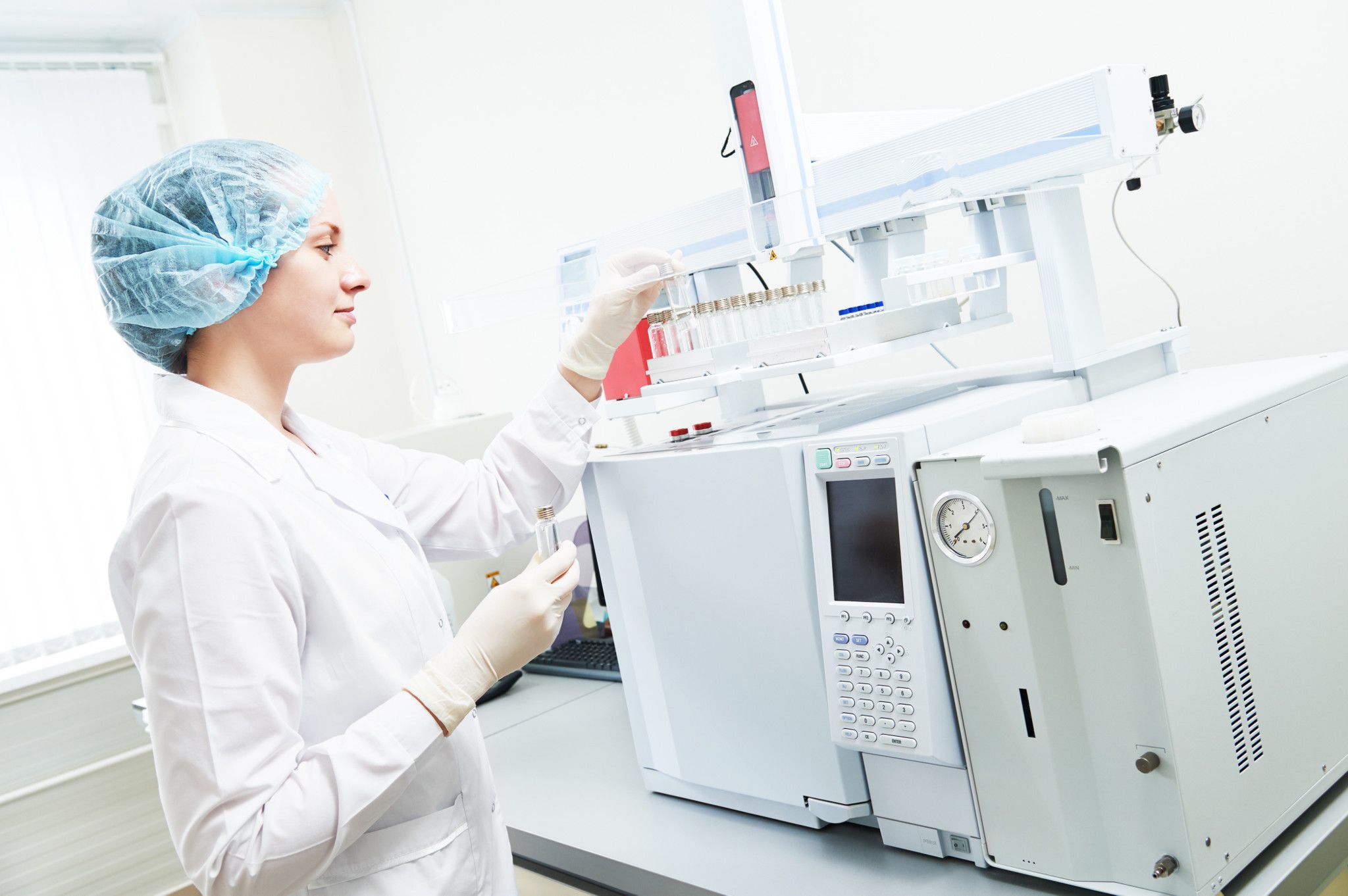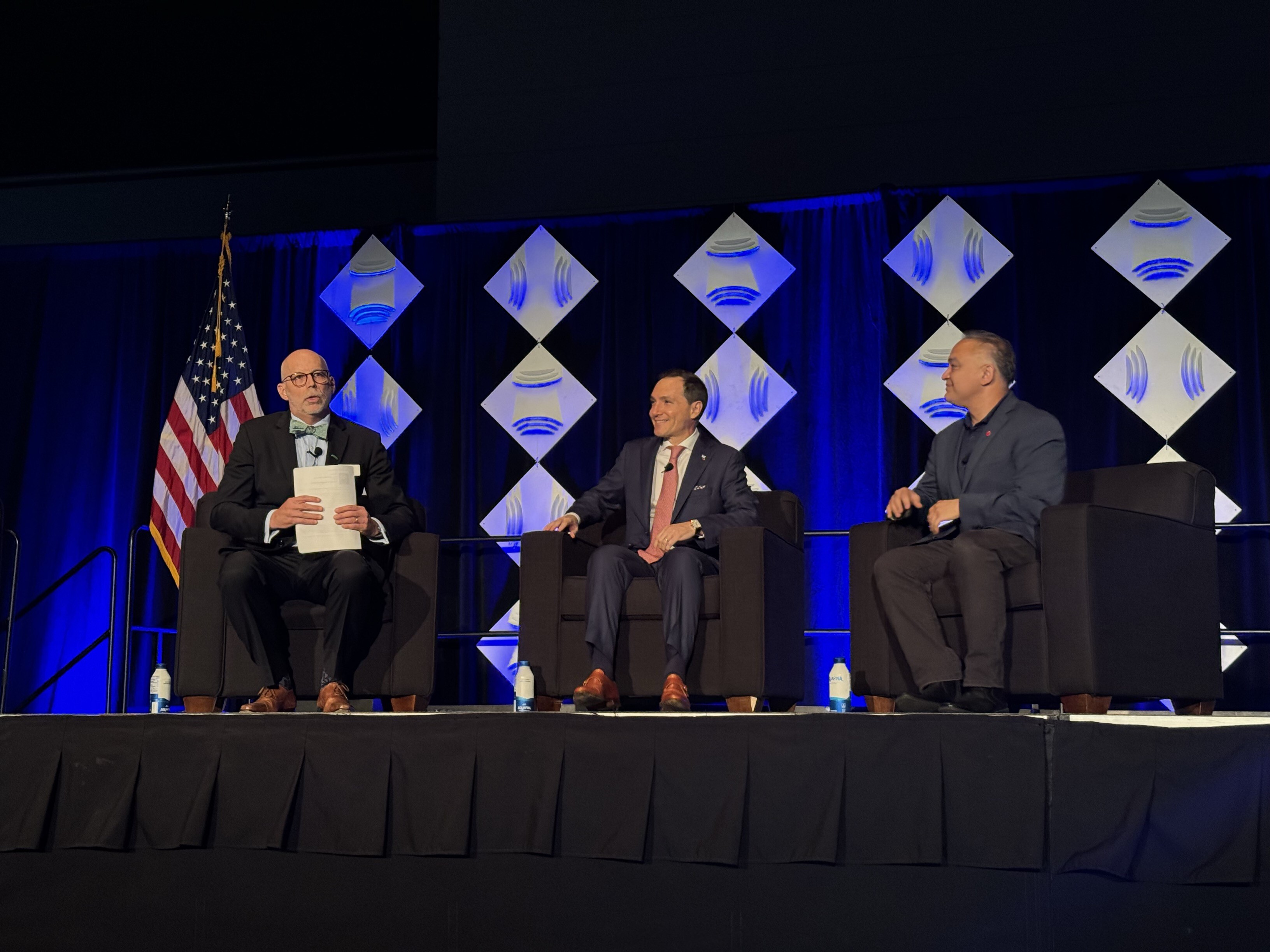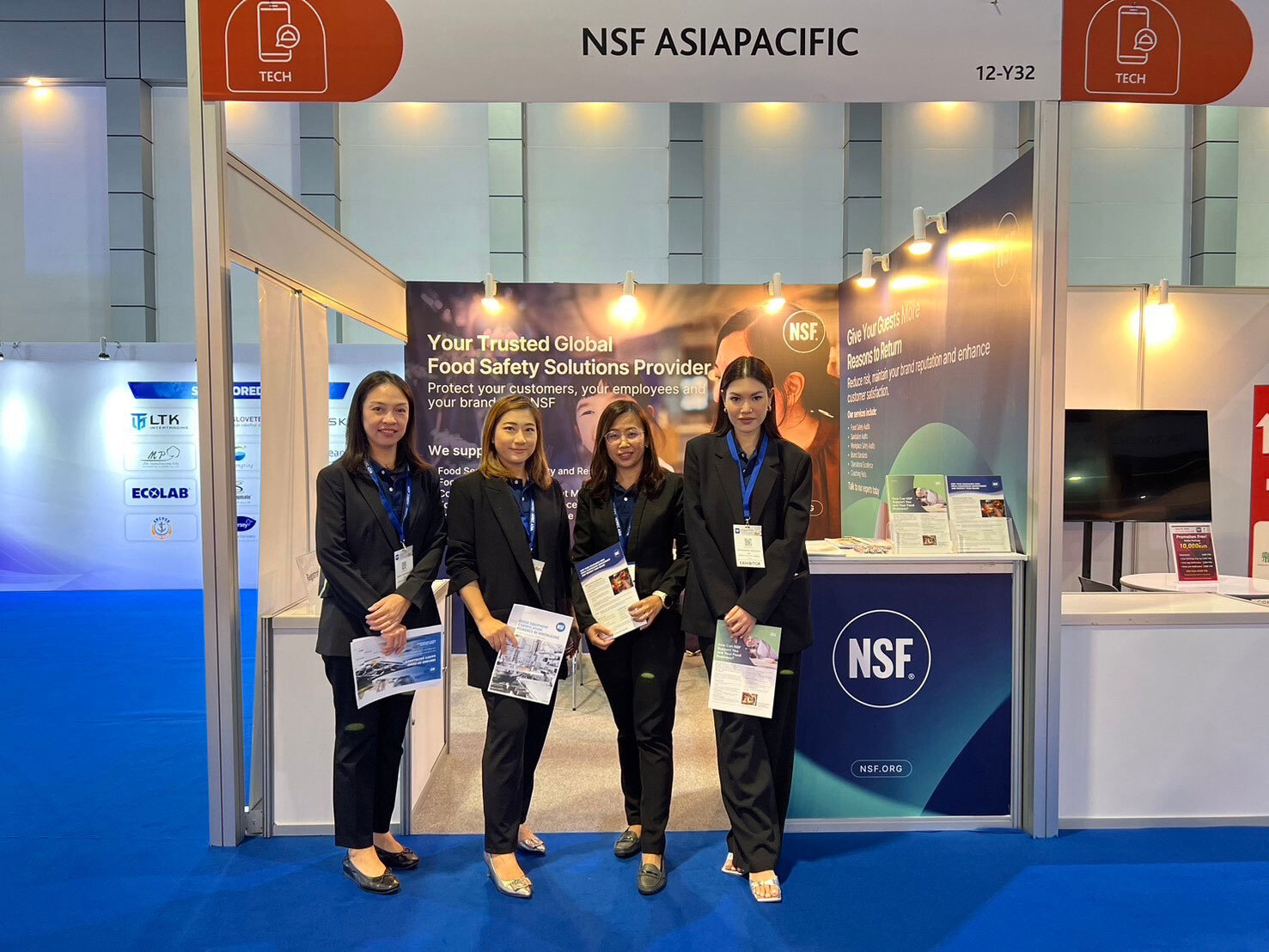NSF Staff Takes Part in NEHA Conference
Several NSF staff members participated in the National Environmental Health Association (NEHA)’s annual conference in Nashville, Tenn. the week of July 8. Our CEO presented an award and received an award, we presented a scholar intern award, two staff members gave educational sessions and we sponsored the NEHA president’s reception.
Kevan Lawlor, NSF’s President and CEO, presented the Walter F. Snyder Environmental Health Award along with David Dyjack, NEHA’s Executive Director. Given annually since 1971 by NEHA and NSF, the Snyder Award honors NSF’s cofounder and first executive director, Walter F. Snyder, who provided outstanding contributions to the advancement of environmental and public health. The 2019 winner, LCDR Katie L. Bante, MPH, REHS/RS, received the award on July 11 in recognition of her leadership and collaboration in spearheading public health initiatives.
Kevan was also honored with a special award from the American Academy of Sanitarians (AAS), given in gratitude for funding and other support of environmental health education that NSF has provided over the years.
In partnership with the Association of Environmental Health Academic Programs (AEHAP), NSF offers a paid internship to university students from programs accredited by the National Environmental Health Science and Protection Accreditation Council. NSF’s scholarship allows an undergraduate student to gain valuable experience in the environmental health field. The NSF Scholar Intern Award winner, Kate Walters of Eastern Kentucky University, was selected by AEHAP and will spend 10-12 weeks working on a research project identified by NSF.
Derek DeLand, NSF’s Environmental Health Programs Manager, Regulatory Affairs, presented sessions on wastewater treatment systems and refrigeration unit testing. His first presentation, Conserve and Protect: NSF Onsite Wastewater Treatment System Standards and Testing, discussed three wastewater treatment standards, NSF/ANSI 40 for onsite treatment systems, NSF/ANSI 245 for nitrogen reduction systems and NSF/ANSI 350 for water reuse systems. Derek covered the value of standards and the certification process, including performance testing details such as influent and effluent characteristics, dosing volume, sampling days and stress loading.
Derek’s second talk, How Refrigeration Units Are Tested and Certified and Why It Matters, covered the construction and performance testing requirements of NSF/ANSI 7 and how to better understand labels placed inside certified refrigeration units (such as “for the storage and display of packaged products only”). He also discussed the process of national consensus standard development, the value of standards and certification, and how regulators play a role.
Blake Stark, NSF’s General Manager, Water Treatment Chemicals and Media, presented Recent Updates to the Model Aquatic Health Code (MAHC). He provided an overview of the 2018 edition of the MAHC, including updates made since the last edition of the MAHC, with a particular focus on the new pool chemical specifications.
NSF also sponsored the president’s reception and Stan Hazan, NSF’s Senior Director of Regulatory Affairs and Association Programs, provided some remarks about NEHA and NSF collaboration.
Share this Article
How NSF Can Help You
Get in touch to find out how we can help you and your business thrive.

What’s New with NSF

NSF Shanghai Named Critical Site for NSF/ANSI 455 and NSF/ANSI 173 by ANSI National Accreditation Board
July 26, 2024
NSF Takes Center Stage at NEHA Annual Education Conference
July 25, 2024
NSF Asia Pacific Showcases Hospitality Solutions at THAIFEX HOREC Asia 2024 in Bangkok, Thailand
July 4, 2024